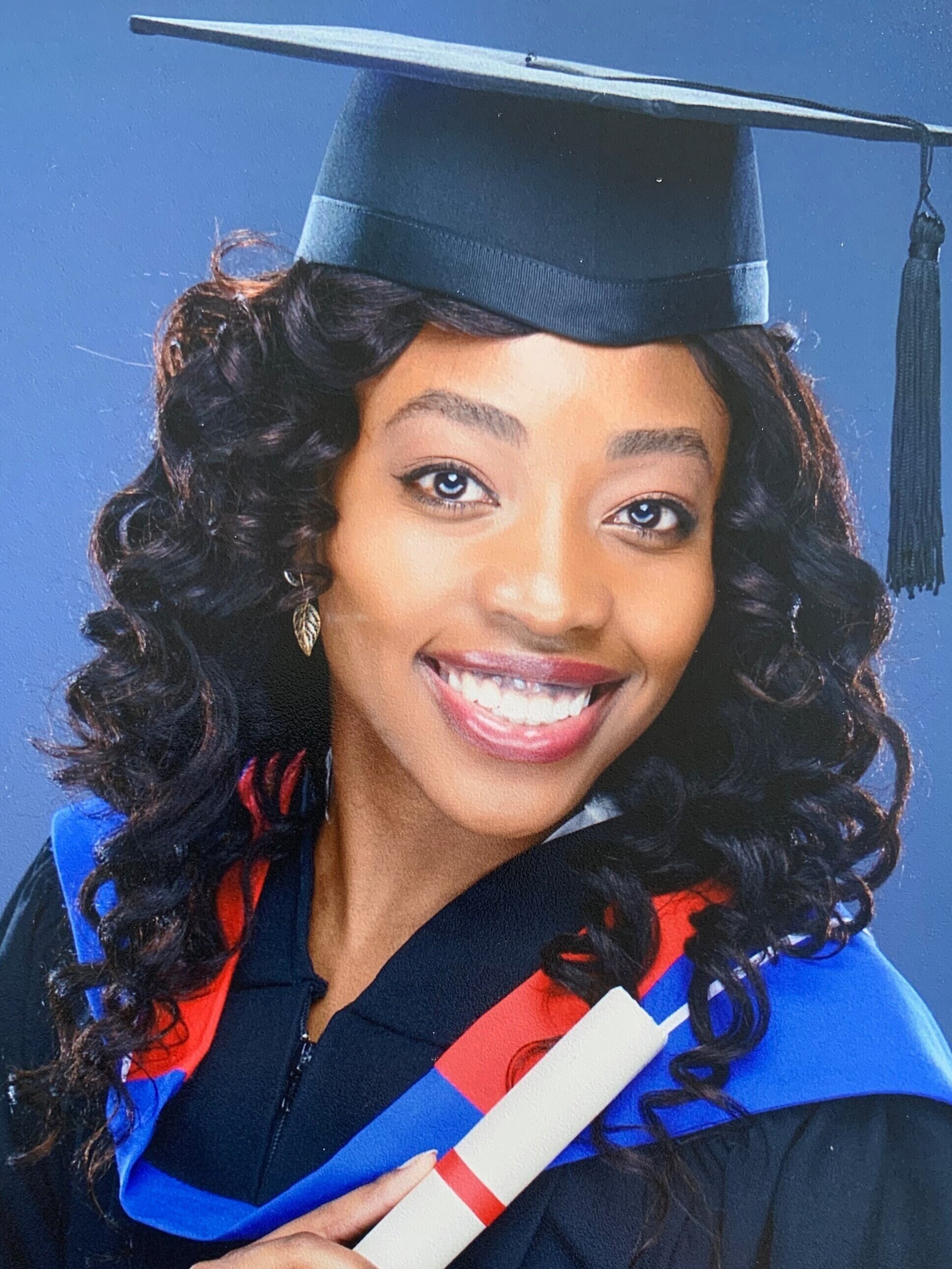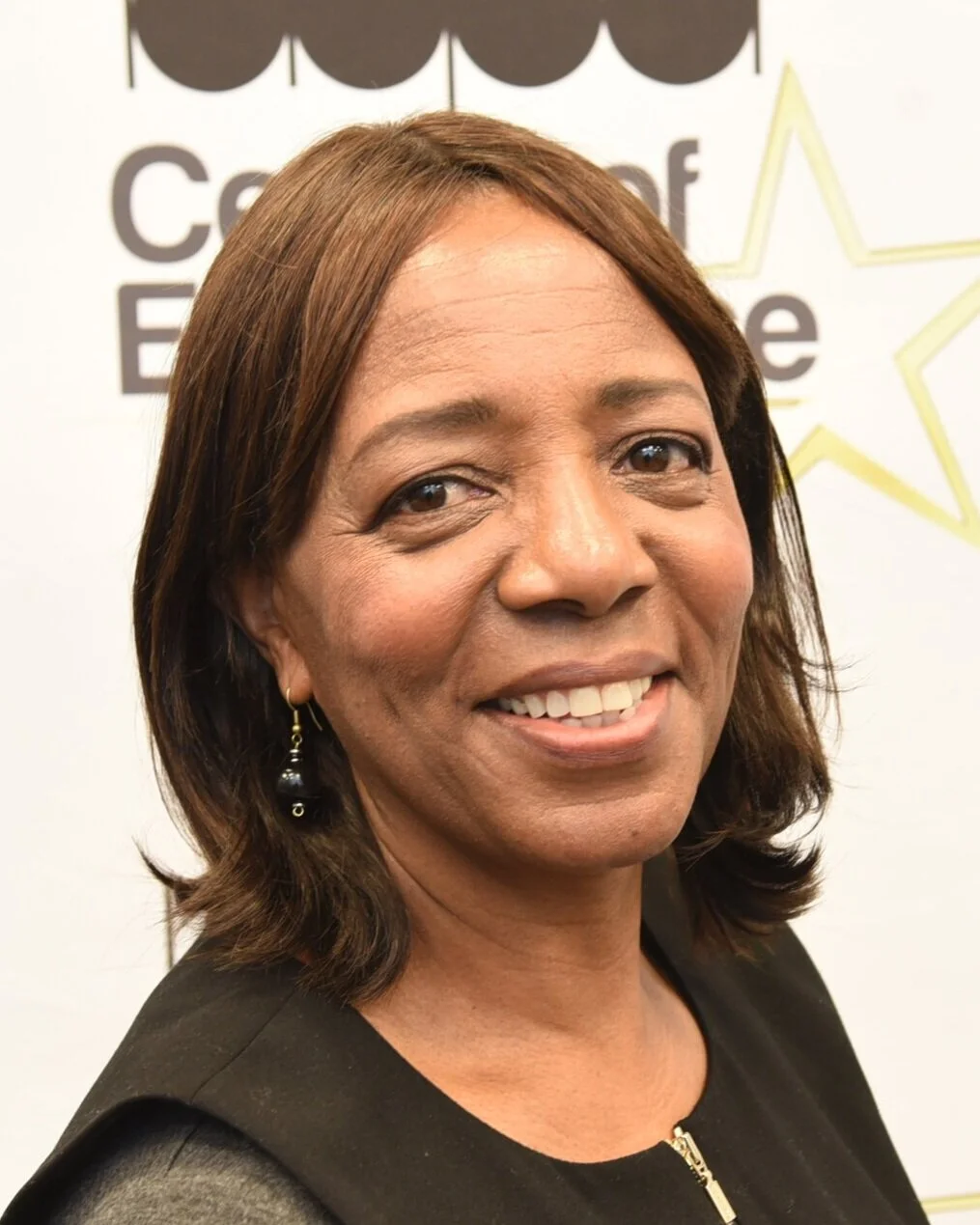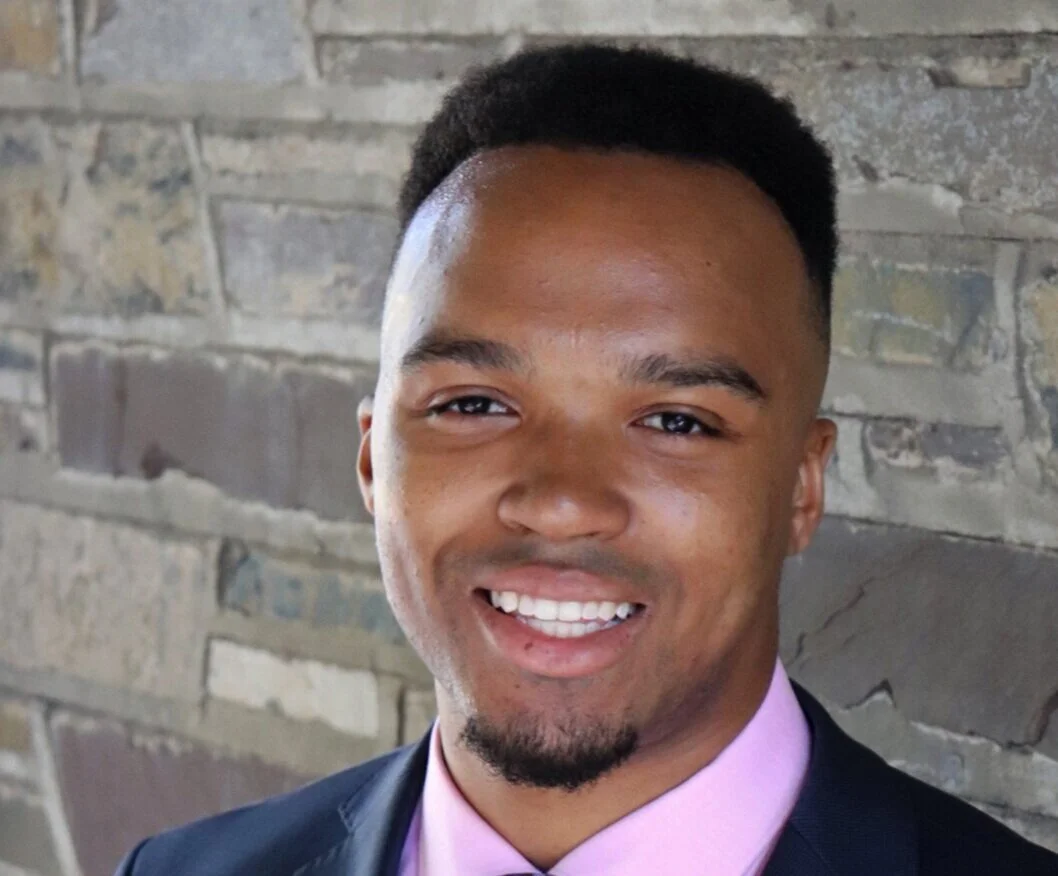U of T Faculty of Medicine first Black female valedictorian is a poet and activist
May 28, 2020
Chika Oriuwa has always stood out.
Four years ago, she was the only Black in her class of 259 first-year medical students at the University of Toronto.
The unique experience ends with her having the distinction of being the Faculty’s first Black female valedictorian nearly a decade after she was accorded the honour at St. Thomas Aquinas Secondary School in Brampton.
“I am incredibly thankful to those for voting for me and recognizing the value of the work that I do and the contributions I have made to the faculty and overall community,” said Oriuwa. “For me, it is a testament to the advocacy I have done over the last four years. To be able to come this far is also reflective in the shifting demographic and values of medicine today. With my cohort of graduating physicians, it’s clear that we, as a collective group, value certain things more than they historically have been valued. We value diversity and inclusion and that’s very reflective in me being voted class valedictorian.”
As the only Black student in her class, Oriuwa said the expectations and pressure were at times overwhelming.
“I felt I had to prove my merit in the classroom,” she said. “Not only did I feel like this was intrinsically motivated, but externally reinforced when individuals would question if I had an easier route to get into medical school simply because of my race than somehow me getting in off my own merit. Absent for me throughout medical school was that caring solidarity of having a community of Black doctors available to be able to identify with some of the discrimination and micro-aggression that one faces throughout the course of medical school and that was very challenging.
“I was also in a critical environment in which I was exposed to discrimination not only from patients but peers and staff and really struggling with that and not knowing how to unpack or process that kind of adversity. It wasn’t until I started to do a lot more of my advocacy work through giving keynote addresses, doing seminars, my poetry and being able to be an activist in that regard which was a very liberating and empowering process that has allowed me to reclaim some power in the situation.”
History maker Chika Oriuwa
The colour of Oriuwa’s skin was also a factor during a border crossing in 2013 with some of her McMaster University White and Asian classmates.
They were going to New York to shop after exams.
“After requesting our credentials and inquiring where we were going and the reason, the agent asked if we were in school and we said ‘yes’,” she recalled. “When he asked what we were studying, we said were are in Health Sciences and we want to become medical doctors. He peered into the car, looked directly at me sitting in the front passenger seat and remarked, ‘Even you’. I said, ‘yep’ and his response was ‘really’. There was this back and forth and it was obvious he didn’t believe me.”
Oriwua was fazed by the interaction.
“It was very disconcerting and discouraging having to experience something like that,” she said. “It was also another reminder that in the world of medicine, there’s not a lot of representation of Black women. Those that claim to have that status are often discredited.”
To navigate medical school and the challenges she faced, Oriuwa leaned heavily on mentors.
They included Dr. Pier Bryden who is a Staff Psychiatrist and member of the U of T Faculty of Medicine, Dr. Onye Nnorom who is a Family Physician and Public Health & Preventive Medicine Specialist and pediatric nephrologist Dr. Lisa Robinson who graduated from U of T medical school in 1991 and was one of two Blacks in her class.
“Chika is a strong advocate and voice for why equity and representation in medicine matter so much,” said Robinson who was recognized in 2010 with a Harry Jerome Award for Excellence in Health Sciences. “She’s brilliant, creative, passionate and compassionate and a true inspiration for me and so many others.”
The mentors took Oriuwa under their wings as soon as she started medical school.
“In particular, Drs. Nnorom and Robinson helped to guide me along everything with regards to my advocacy,” she noted. “They enabled me to feel empowered, strengthened and supported when I was using my voice to really shine a light on my narrative and some of the inequities that were present in medical education and admission. With regards to practicing medicine, they also taught me how to deal with discrimination first-hand as a Black woman and how to respond because there’s really no workshop or module on how to navigate racism as a woman of colour.
“Dr. Bryden is an excellent ally for everything that I have been pursuing in medicine and she helped to foster my love for Psychiatry that I am specializing in. She also gave me excellent advice when it comes to how I engage in somewhat controversial advocacy.”
Psychiatry, Oriuwa feels, is the right fit for her.
“It’s the most natural of evolution of my advocacy,” she pointed out. “When I was in medical school, everything that I did with regards to my advocacy was around empowering the disenfranchised and safeguarding marginalized communities. In medical school, I thought I wanted to be an internist because I loved the complexity and acuity. However, when I got to Psychiatry, I realized I could still get those things. It really translated into safeguarding arguably one of the most vulnerable and marginalized populations in medicine. When I finally got to that rotation which was my last, it just became very clear to me that I was called to do that work to be able to connect with and advocate for a population of patients that are often sidelined.”
To increase outreach to Black Canadian students and ultimately boost the level of medical students at U of T, Ike Okafor – the senior officer of Student Learning & Diversity Outreach at the Office of Health Professions Student Affairs and chair of the Black Canadian Admissions Subcommittee, started the Community of Support (COS) in 2015 to provide opportunities for mentorship, job shadowing and research as well as personalized guidance on admissions.
There were about 15 Black students in each class in the last three years.
“It is important to have that community and solidarity in which you are able to point out inequities in medical education if they arise,” said Oriuwa who is an accomplished spoken word artist.
The poetry writer since around age seven started using poems as a means of advocacy.
“That phase of my life really took off when I was doing my undergraduate studies around the time when young Black men in the United States were dying at the hands of police and when the Black Lives Matter movement was picking up steam,” pointed out Oriuwa. “I was a professional spoken word artist for years before joining medical school.”
In her second year in medical school, she produced a spoken word video, ‘Woman, Black’
“At the time, I was struggling with being the only Black person in my class,” Oriuwa said. “I wanted to shed more light on my narrative. Poetry and advocacy for me have always been intertwined and I am fortunate to have that as an outlet.”
The third of four children feels very blessed to have parents who have always supported her.
Stephen and Catherine Oriuwa migrated from Nigeria in the late 1980s.
“My dad taught me humility and pushed me to be the best I can while my mother is my absolute best friend and cheerleader,” added Oriuwa. “They sacrificed everything to ensure that I accomplished my dreams.”







